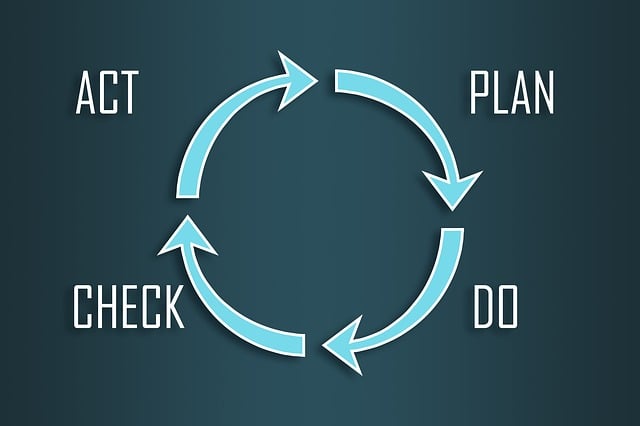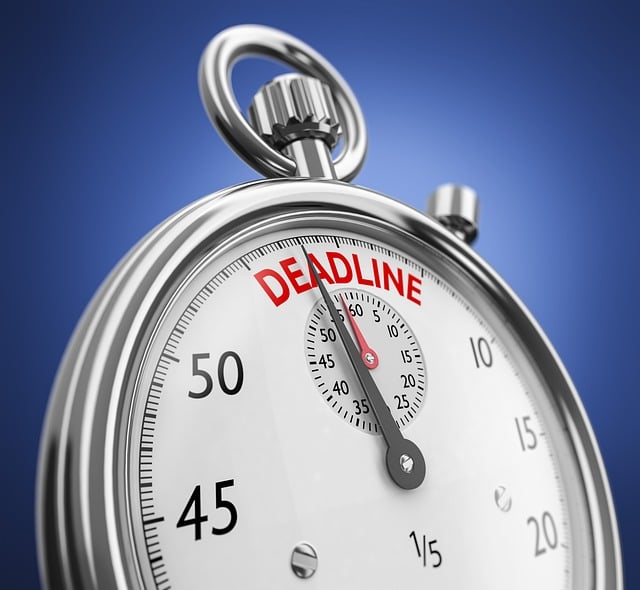Event planning is a strategic tool for local businesses, serving as a means to amplify brand visibility, engage with the community, and drive sales through well-executed events. Expert planners go beyond mere coordination, crafting immersive experiences that resonate with local patrons by selecting fitting venues and managing all event details from guest invitations to post-event analysis. These professionals excel in orchestrating diverse events, such as product launches, seasonal promotions, and cultural celebrations, which not only attract customers but also solidify the business's community presence. The strategic alignment of these events with a company's objectives, coupled with capturing the local spirit, is crucial for enhancing brand reputation and market visibility. Event planning thus plays a dynamic role in connecting local businesses with their audience in meaningful ways, ensuring that each event is a successful blend of marketing acumen and community engagement, leaving lasting impressions and driving business growth. The effectiveness of these events is measured through both quantitative metrics, like attendance and immediate sales following the event, and qualitative insights, such as audience sentiment and social media interactions, to refine future strategies. The success of local businesses in leveraging event planning is evident in case studies where strategic events have significantly boosted sales and strengthened brand identity within the community.
Local enterprises can significantly amplify their market presence and customer engagement through strategic event planning. This article delves into the pivotal role of event planners in crafting bespoke events that resonate with local communities. We’ll explore the essence of customized events, outline key objectives for businesses hosting such gatherings, and provide actionable strategies for selecting and partnering with an adept event planning team. Additionally, we’ll discuss how to measure success through relevant metrics and goals, and share case studies showcasing local businesses that have thrived post-event. Join us as we navigate the critical intersection of local business promotion and event planning excellence. By leveraging strategic event planning tips, businesses can create memorable experiences that not only align with their brand identity but also foster meaningful connections within the community. From selecting the perfect venue to crafting interactive experiences, every detail plays a role in building lasting impressions. Ultimately, a well-executed event has the power to transform attendees into loyal customers and brand advocates.
- Understanding the Role of Event Planners for Local Businesses
- The Importance of Customized Events in Local Market Engagement
- Identifying Key Objectives for Local Business Events
- Strategies for Selecting and Collaborating with an Event Planning Partner
- Measuring Success: Metrics and Goals for Local Business Events
- Case Studies: Local Businesses Transformed through Effective Event Planning
Understanding the Role of Event Planners for Local Businesses

Event planning for local businesses is a multifaceted endeavor that extends beyond mere coordination of events; it encompasses strategic marketing, understanding target demographics, and creating memorable experiences. Local businesses often rely on event planners to facilitate engagement with the community, promote their brand, and drive sales. These professionals are adept at selecting venues that resonate with the local clientele while ensuring logistical precision from guest invitations to post-event evaluations. By leveraging their expertise in managing events such as product launches, seasonal campaigns, and cultural festivities, event planners for local businesses can transform ordinary gatherings into significant marketing tools, fostering relationships with customers and establishing a strong local presence. Their role is pivotal in curating events that not only align with the business’s objectives but also reflect the unique spirit of the community they serve. Through meticulous planning and execution, event planners play a crucial role in enhancing the reputation and visibility of local businesses within their markets.
The Importance of Customized Events in Local Market Engagement

local businesses often rely on event planning as a strategic tool to engage with their communities and markets. By leveraging the expertise of professional event planners, these companies can create customized events that resonate with local tastes, preferences, and cultural nuances. This tailored approach not only fosters a deeper connection between the business and its audience but also helps in building brand loyalty and enhancing customer experiences. Event planning for local businesses goes beyond mere organization; it’s about crafting memorable occasions that become a part of the community’s social fabric, thereby driving both engagement and sales.
In the realm of local market engagement, event planners play a pivotal role in curating experiences that align with the business’s objectives while honoring the unique characteristics of the local clientele. These bespoke events serve as touchpoints for businesses to demonstrate their commitment to the community, showcase new products or services, and gather valuable feedback. By partnering with skilled event planners, local businesses can effectively navigate market trends, foster positive public relations, and establish themselves as integral and forward-thinking entities within their respective local markets.
Identifying Key Objectives for Local Business Events

local businesses often find that event planning is a critical component in their marketing and community engagement strategies. To effectively plan events for these businesses, it’s essential to first identify key objectives. These objectives can range from increasing brand awareness, launching new products, or celebrating milestones, to fostering relationships with clients and customers. An event planner must align the event’s theme, activities, and logistics with the business’s goals. For instance, if the objective is to generate leads, the event should be designed to attract a target audience and provide them with compelling reasons to engage with the brand. Similarly, if the aim is to strengthen community ties, the event should reflect the local culture and values, encouraging participation from a broad demographic within the community. By setting clear, achievable objectives, local businesses can ensure their events are not only well-attended but also successful in meeting their specific marketing and engagement targets. Event planning for local businesses requires a tailored approach, with each event strategically crafted to align with the business’s unique vision and desired outcomes. This attention to detail and customization is what sets local business events apart and can lead to lasting impressions and meaningful connections.
Strategies for Selecting and Collaborating with an Event Planning Partner

Local businesses looking to host events that leave a lasting impression on their audience can greatly benefit from partnering with skilled event planners. Selecting the right event planning partner is pivotal for the success of any business event, whether it’s a product launch, a corporate gala, or a community festival. When choosing an event planner, consider their experience, reputation within the local event planning community, and alignment with your brand’s values and objectives. A seasoned event planner will bring a wealth of knowledge in logistics, vendor coordination, and creative execution that can transform a vision into a reality. Collaboration is key; maintain open lines of communication throughout the planning process to ensure the event aligns with your goals and resonates with your target audience. By leveraging an event planner’s expertise, local businesses can enhance their event’s professionalism, streamline operations, and create memorable experiences that foster community engagement and business growth. Engage with an event planning partner who understands the nuances of local business events and who can seamlessly execute every detail, from concept to completion, ensuring that your event for local businesses is a resounding success.
Measuring Success: Metrics and Goals for Local Business Events

Event planning for local businesses plays a pivotal role in crafting successful events that resonate with the community and align with the brand’s objectives. Measuring success in these endeavors involves a mix of quantitative and qualitative metrics tailored to the specific goals of each event. For instance, local businesses can track attendance numbers, engagement levels during interactive sessions, and immediate sales conversions as direct measures of success. Additionally, gauging audience satisfaction through surveys or feedback forms offers valuable insights into the overall experience and helps in refining future event strategies.
Local businesses must also consider long-term customer relationships built during these events. Metrics such as repeat attendance, social media engagement, and post-event sales trends are crucial for understanding the lasting impact of an event on the business. By setting clear goals, such as increasing brand awareness or launching new products, local businesses can align their event planning efforts with measurable outcomes. These goals should be SMART (Specific, Measurable, Achievable, Relevant, and Time-bound) to ensure a clear path towards success and to facilitate the continuous improvement of event planning for local businesses.
Case Studies: Local Businesses Transformed through Effective Event Planning

Local businesses across various sectors have leveraged event planning to enhance their brand presence, customer engagement, and overall market performance. A notable case study is that of a family-owned restaurant chain in a mid-sized city. By partnering with professional event planners, they transformed their annual customer appreciation day into a series of themed events that not only drew larger crowds but also increased sales by 25%. The strategic use of local themes and collaborations with community artists and performers positioned the events as must-attend occasions, thereby amplifying the restaurant’s local brand awareness.
Another success story comes from a boutique retail store specializing in sustainable fashion. Recognizing the importance of creating immersive shopping experiences, the store enlisted the services of event planners to organize a ‘Fashion with Purpose’ event. This event not only highlighted their eco-friendly products but also showcased the brand’s commitment to social responsibility. The meticulously planned event included interactive workshops, live music, and a panel discussion with industry leaders, which significantly boosted the store’s customer loyalty and sales, demonstrating the transformative impact of effective event planning for local businesses.
In conclusion, leveraging event planners is a strategic move for local businesses aiming to enhance their market engagement and achieve measurable success. Customized events designed with specific objectives in mind can create meaningful touchpoints with the community, fostering loyalty and driving growth. By partnering with skilled event planning professionals, businesses can navigate the complexities of event management, ensuring each gathering not only aligns with their brand but also resonates with attendees. The case studies presented highlight the transformative impact of effective event planning on local enterprises, underscoring its importance in the broader scope of business development and marketing strategies. Local businesses looking to elevate their presence through events should consider these insights as a stepping stone towards more impactful and successful endeavors. Event Planning for Local Businesses is not just a service; it’s a strategic asset that can redefine your brand’s narrative in the local market.
